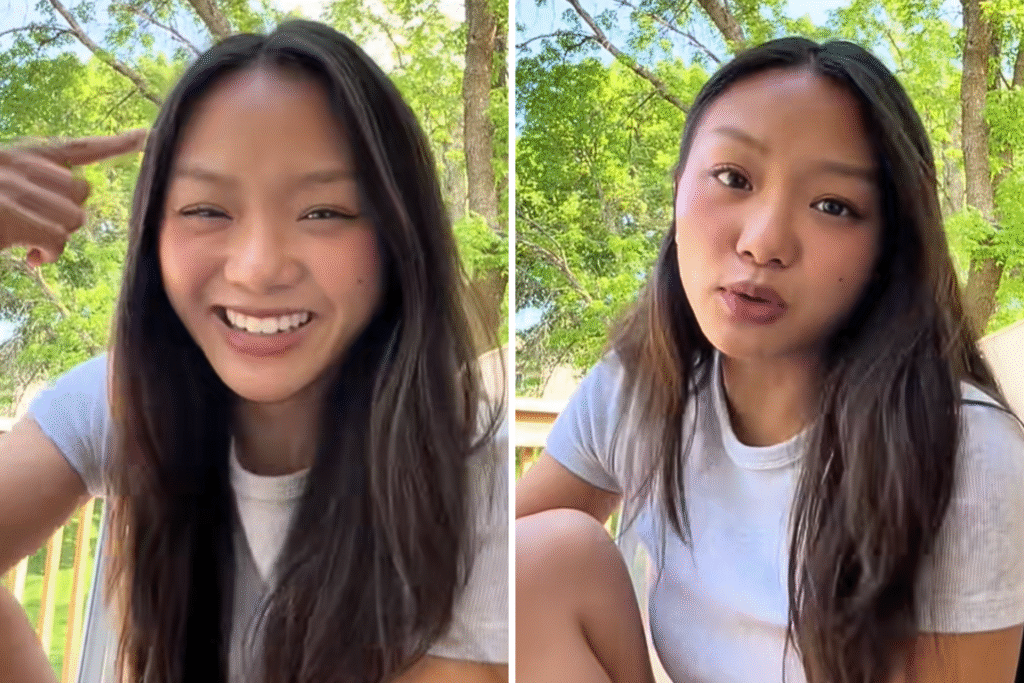Little is yet known about the impact that growing up with technology, particularly social media, has had on Generation Z.
Studies are still being done on the long-term effects of platforms such as TikTok and Instagram now that those born between 1997 and 2012 grow older. But several sources have already highlighted the link between worsening mental health and social media usage.
One Gen Zer took matters into her own hands to try to discover what a life without social media could look like—a life she had hardly ever known.
Quynh Van, 26, a UX designer based in Minneapolis, Minnesota, told Newsweek about what she learned from going cold turkey on all social media for four years.
“Stepping away from social media gave me the space to reconnect with myself—to think more clearly, develop new hobbies, and break out of the cycle of constant comparison,” Van told Newsweek. “I became more present in my relationships, more emotionally resilient, and more intentional about how I move through the world.
“I shared my story online because I wanted to offer a counter-narrative—one rooted in intention, gentleness, self-acceptance, and a slower, more meaningful way of living.”
Indeed, Van took to TikTok on May 14 to open up about her experience, shortly after rejoining the platform following her lengthy hiatus. To date, the candid clip has been viewed more than 1 million times, generating thought and emotion within its audience about the drawbacks of being online.
“I quit social media four years ago and it completely changed my life,” Van said in the video, speaking directly to her phone’s camera. “For background, I deleted everything—Instagram, Twitter, everything—back in the beginning of 2021.
“It is now 2025 and I just started TikTok a month ago and this is the only social media I have.”
Van spoke about the most-profound changes she experienced during her digital detox.
“The first thing I noticed was that I just became my most-authentic self,” she said. “You’re just a much more interesting person because you’re not consuming what other people are thinking, doing, wearing or saying.
“You have much more space for your own thoughts, learning new hobbies, reading new books, reading articles,” Van added.
Without social media dictating the trends she should keep an eye on or influencing her lifestyle, Van said she gained a stronger sense of identity in a short amount of time.
“It’s refreshing because you know the person you’re becoming is who you’re meant to be,” she said.
Another key realization was how much free time Van reclaimed, free time that she could now spend on real-life hobbies and activities and on her personal development.
“You suddenly have so much time you didn’t even know you had,” Van added. “It’s so productive and it’s so freeing.
“Life just stops disappearing into a scroll,” she added.
One of the most-moving insights came when Van recognized the toll social media had taken on her mental health.
“I stopped comparing myself,” Van said. “Another thing I learned was that I had to learn to sit with my emotions.
“You can’t just inoculate yourself with dopamine hits and avoid the painful emotions anymore with social media; you have to learn to sit in the discomfort.”
Van later said that this made her stronger, more emotionally resilient, and, for the first time, truly able to gain peace inside her own mind.
“My brain felt green—it was a forest of peace,” Van added.
Her relationships, she found, also improved, adding: “When you’re grounded in reality, you show up differently, you’re more present, you listen better.”
Prior to 2021, Van said she spent a lot of time on her cellphone, forming parasocial connections with the influencers, celebrities and even old friends that she still followed online.
At the time, she considered those virtual relationships meaningful and important—until stepping away showed her how little they actually mattered, and how she only needed to stay informed about the people she saw in her day-to-day reality.
The realization was both sobering and liberating.
Van was surprised by her TikTok post’s viral reach, especially so early in her return to social media.
“Going viral was a surprise, especially since I’d just come back online and created the account,” Van said, “but also incredibly affirming.
“I’m grateful my words resonate and offer clarity and comfort to others.”
Encouraged by the response, Van said she plans to continue creating emotionally honest and thoughtful content on the platform.
“I hope to continue using my voice to create content that’s inspiring—and this experience has encouraged me to keep going to share my unique perspective.”
Read the full article here
